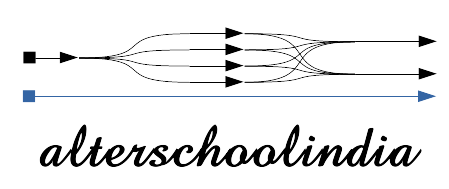A particular phenomenon may depend on several factors. For example, your chances of scoring good marks in exam depend on your preparation, your mood on the day of the exam, as also the difficulty of the exam. In such a situation, we perform experiments such that only one of the factor (henceforth, called variable) is changed at one time.
[Familiarity with decimal numerals, fractions, variables, and proportionality is expected. Check the page on mathematics, if you are unfamiliar with them.]
Suppose that some substance has a property z that depends on two [independent] variables x and y. Suppose, from exploratory researches, it is established that z increases with increase in x and decreases with increase in y. Let us hypothesize that z is proportional to x and 1/y.
Suppose, we do not regard the above suggestion of changing one variable at one time. Then these are the results. Predicted values are given in brackets.
| x | 1 | 2 | 3 | 4 | 5 |
| y | 2 | 4 | 6 | 8 | 10 |
| z | 1 (1) | 2 (1) | 3 (1) | 4 (1) | 5 (1) |
Thus, prediction says z remains constant. While observations tell us that z increases. So, which of "z is proportional to x" and "z is proportional to 1/y" is false?
Now, let us follow the suggestion. The observations are given. The predictions are written in brackets.
| x | 1 | 2 | 3 | 4 | 5 |
|---|---|---|---|---|---|
| y | 2 | 2 | 2 | 2 | 2 |
| z | 1 (1) | 4 (2) | 9 (3) | 16 (4) | 25 (5) |
Keeping in mind the above suggestion, note that only x is changed. y remains constant. z changes due to change in x.
| x | 1 | 1 | 1 | 1 | 1 |
|---|---|---|---|---|---|
| y | 2 | 4 | 6 | 8 | 10 |
| z | 1 (1) | 0.5 (0.5) | 0.33 (0.33) | 0.25 (0.25) | 0.2 (0.2) |
Note that only y is changed, while x is maintained constant. z changes due to the change in y.
Thus, by changing variables one at a time, we can clearly check which of the dependence we hypothesized is true. It can be clearly seen that our hypothesis that "z is proportional to x" is false, while "z is proportional to y" is true. There was also a possibility of both being false!
In reality, the relations can be much complicated.


 Got any questions?
Got any questions?